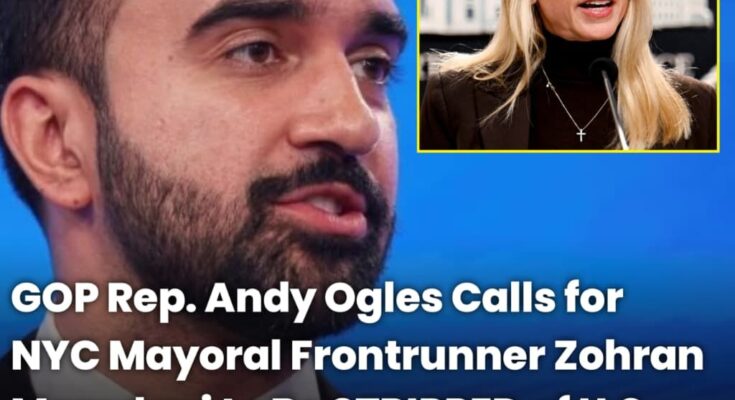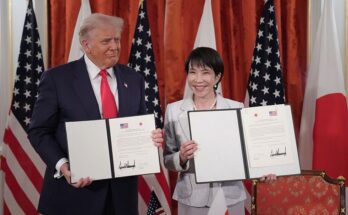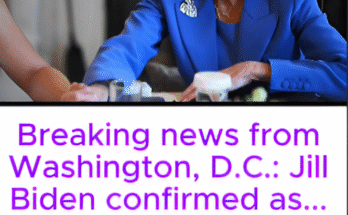Republican Rep. Andy Ogles Pushes for Denaturalisation of NYC Mayoral Candidate Zohran Mamdani Amid Allegations of Concealed Terror Ties and Socialist Loyalties
A fierce political storm has erupted over Zohran Mamdani, the Democratic candidate running to become mayor of New York City, as Andy Ogles, Republican congressman from Tennessee and staunch supporter of Donald J. Trump, has formally called on the Justice Department to initiate an investigation into Mamdani’s citizenship. In a letter addressed to Pam Bondi, the U.S. Attorney General, Ogles alleges that Mamdani may have committed serious federal offenses at the time of his naturalisation—including willful concealment of his affiliations and praise for organisations the congressman describes as terrorist-linked—and therefore should be stripped of his U.S. citizenship and deported.
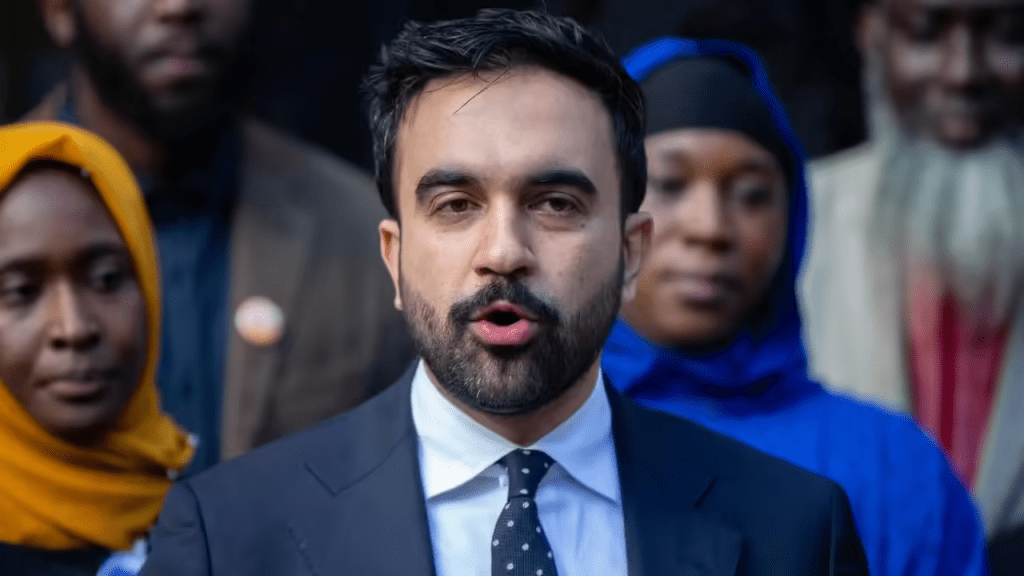
Born in Uganda to Indian-Indian parents and having become a U.S. citizen in 2018, Mamdani has spoken freely about his background and his path to public office. His campaign has emphasised economic justice and affordable housing in New York. But the letter from Ogles reveals a dramatically different angle of attack. He argues that Mamdani failed to disclose his 2017 association with the Democratic Socialists of America (DSA) at the time of naturalisation, and points to controversial rap lyrics the candidate wrote in which he allegedly praised the “Holy Land Five”, a group previously linked by prosecutors to terrorism. The congressman contends these facts may amount to fraud or misrepresentation under U.S. naturalisation law and therefore justify a denaturalisation process.
Mamdani’s campaign and supporters have responded with outrage at the accusations. They assert that these efforts amount to a politically motivated crusade anchored in bigotry and Islamophobia— pointing out that these demands emerged shortly after his primary victory over former Governor Andrew M. Cuomo. Civil-rights groups including the Council on American‑Islamic Relations (CAIR) have condemned Ogles’s references to Mamdani as “little Muhammad” and labelled the move a thinly-veiled campaign of religious harassment.
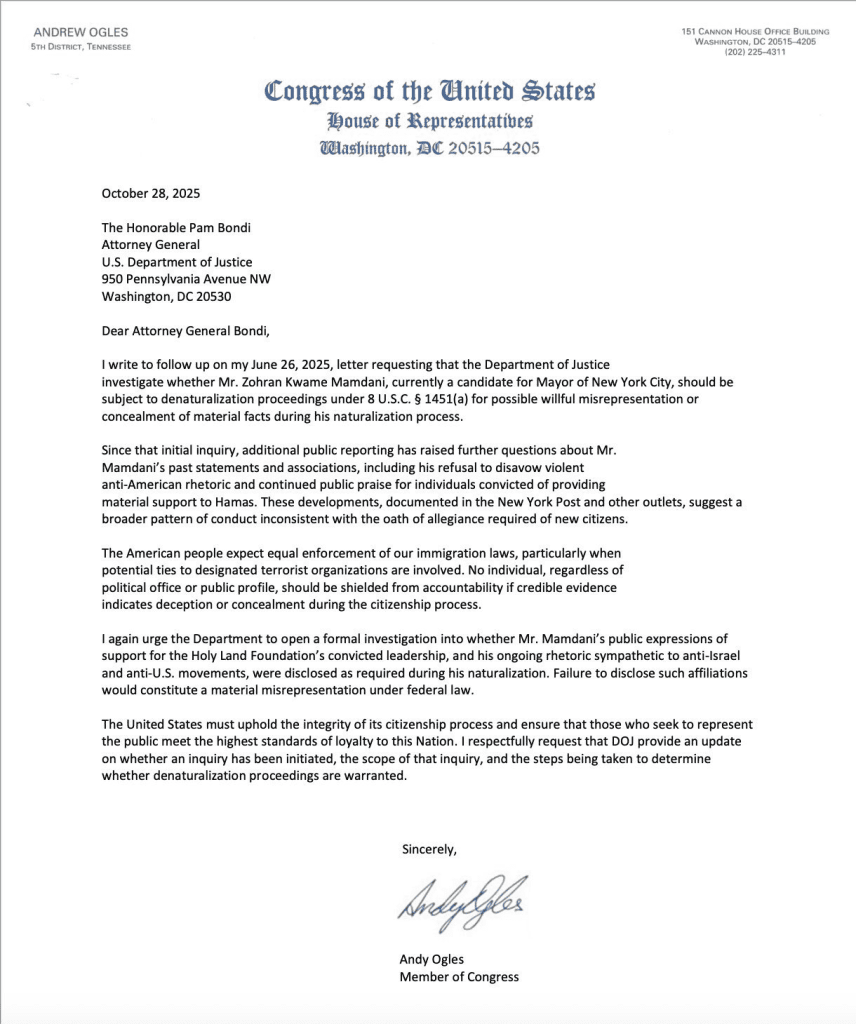
On the broader stage, this episode fits within a larger push by the Trump administration’s Justice Department to roll out denaturalisation as a tool against alleged threats and foreign-born public figures. Legal scholars have sounded the alarm, saying denaturalising U.S. citizens—particularly for political reasons—raises grave constitutional and civil-liberties concerns. Historically, such cases were reserved for proven immigration-fraud or war-crimes contexts; now, the criteria appear to be shifting.
For Mamdani personally, the stakes are enormous. He stands on the brink of making history as New York’s first Muslim and Indian-American mayor, representing a sweeping defeat of political and economic establishment figures. His supporters say the attacks are part of a broader backlash against rising progressive power and diversity in politics. On the flip side, his critics view his socialist ideology and outspoken pro-Palestinian positions as dangerous for the city’s future, and believe the citizenship question is a legitimate inquiry given the gravity of the office.
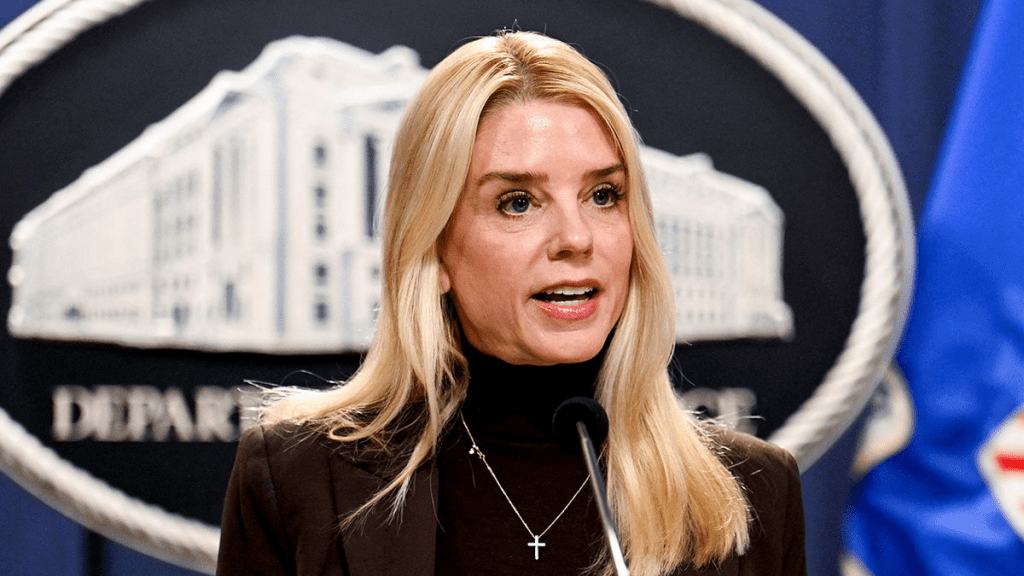
What happens next is uncertain. If the Justice Department accepts Ogles’s request, Mamdani may face an unprecedented legal challenge—one that could derail his campaign and test the boundaries of U.S. citizenship law. Even if it doesn’t lead to formal denaturalisation, the mere cloud of investigation may damage his momentum heading into the November mayoral general election. The optics are stark: a naturalised U.S. citizen, leading in a major city race, now under federal scrutiny while opposed by both party-establishment Democrats and vocal Republican power-brokers.
This development is more than a campaign story—it is a battleground over identity, law and democracy. Mamdani’s rise and the opposition’s counter-attack reflect the deep fault lines in American politics today: immigration and citizenship, socialism and capitalism, religious identity and public service. As New Yorkers and the nation watch, the outcome may well shape not only one city’s leadership but the meaning of American citizenship itself in an era of increasing polarization.
